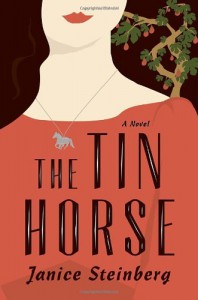27
Followers
16
Following
Sister Mary Murderous
Favorite genres are traditional mystery, police procedurals, espionage, Eurocrime, literary fiction and nonfiction history, especially WW2 and Cold War. I write about crime fiction at Read Me Deadly (www.readmedeadly.com)
 Elaine Greenstein is archiving her life. In her mid-80s, the widowed, retired crusading lawyer is preparing to move to a retirement community and is cleaning out her house. She is assisted by Josh, a doctoral candidate at USC, who is helping identify material for an archive of her papers that the school is compiling.
Elaine Greenstein is archiving her life. In her mid-80s, the widowed, retired crusading lawyer is preparing to move to a retirement community and is cleaning out her house. She is assisted by Josh, a doctoral candidate at USC, who is helping identify material for an archive of her papers that the school is compiling.Elaine had forgotten about the department-store boxes of her mother's papers that she shoved in the back of a closet after her mother's death. These boxes set Elaine down a path of memory to her childhood in the old neighborhood of Boyle Heights, where a lively community of Jewish immigrants worked and went to school with Mexicans, Asians and others who'd come to Los Angeles to achieve their American dream.
Elaine's childhood ended painfully when her free-spirited twin sister, Barbara, ran off and was never heard from again. One of the boxes seems to hold a clue to where Barbara might have gone, and Elaine––with Josh's eager assistance––feels compelled to take her one last chance to finding her sister.
Janice Steinberg vividly portrays the bitter and sweet of working-class immigrant Jewish life in Los Angeles in the 1920s and 1930s. This is not a world I've read about before and it was the strongest part of the book, in its descriptions of stores, streetcars (no need for a car in Los Angeles!), crafts work in early Hollywood, union organizing in the garment business, the rise of Zionism, the arrival of refugees from fascist and Nazi Europe, and dealing with American-style casual anti-Semitism as the Greensteins and their friends begin to go to school and work outside the neighborhood.
In the stories told by Elaine's family, Steinberg also shows us the hardships and terrors of the old country that drove Elaine's ancestors to the new land. The book is a personal history too, of Elaine's whole extended family and of how you can love and hate your family, often at the same time. As with most stories about twins, an important part of the theme is the mixed feelings of guilt, resentment and excitement as the pair development their own, independent identities.
While this is a story well told, with strong characters, I have a couple of problems with it. The flashback story of the teenage Elaine, Barbara and Danny, a boy they both dated, sometimes crosses the line into soap opera territory. Another part of the flashback story includes the fictional detective Philip Marlowe. Plopping a legendary fictional character down in the middle of this took me out of the story. In an author's note on the Amazon product page, Steinberg explains that the character of Elaine as a young woman was inspired by the young woman in the Los Angeles bookstore whom Philip Marlowe has a memorable encounter with in The Big Sleep. Well, alright, that's an explanation, but using Philip Marlowe in this book was too much of a clash of fictional realities for me.
The problems I have with the story weren't serious enough to cause more than the loss of one star. For anyone interested in multi-generational family dramas or stories of the immigrant experience, this is a novel well worth reading.
Disclosure: I received a free review copy of this book.


